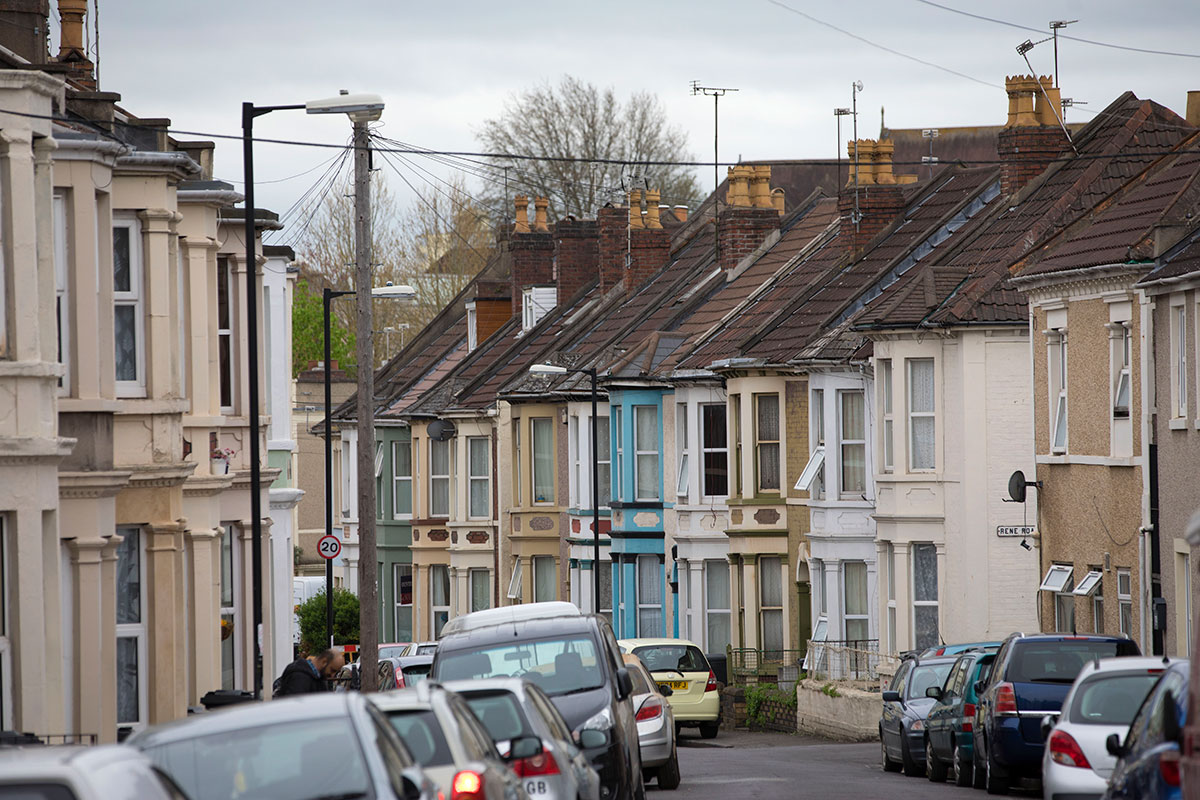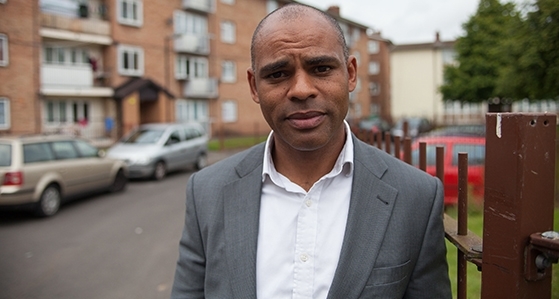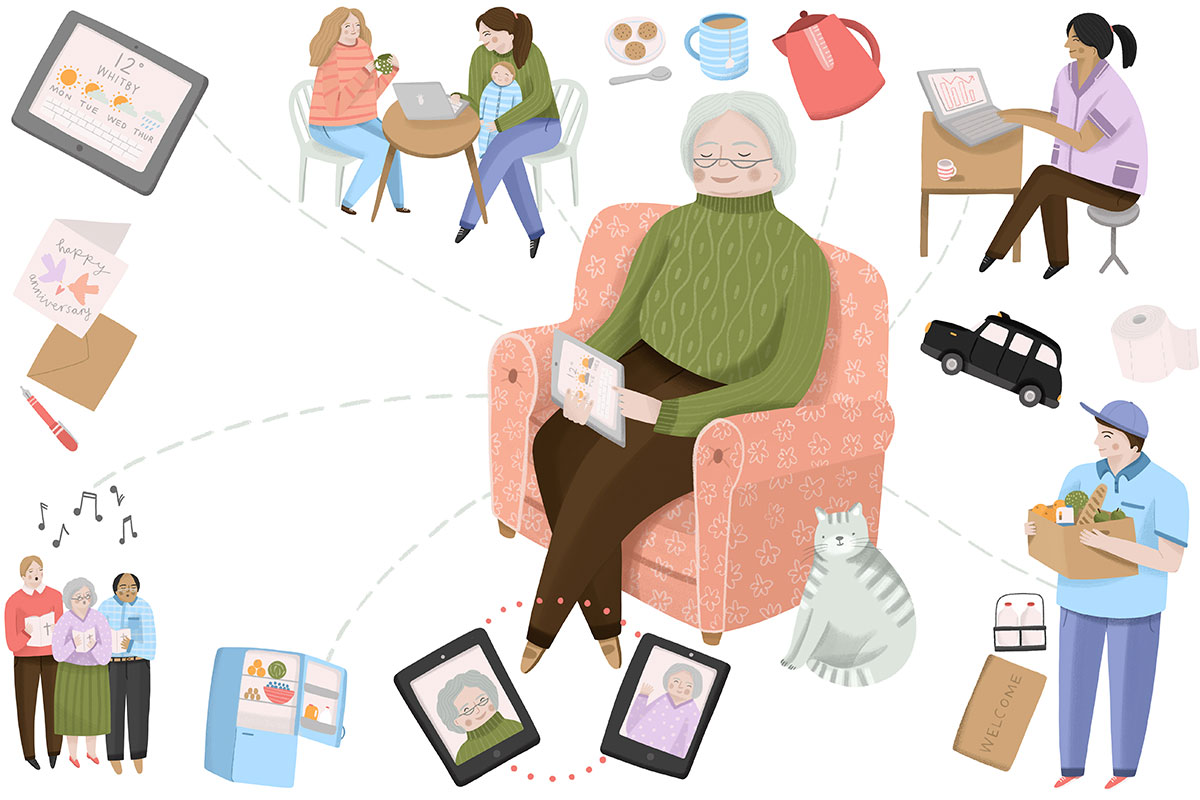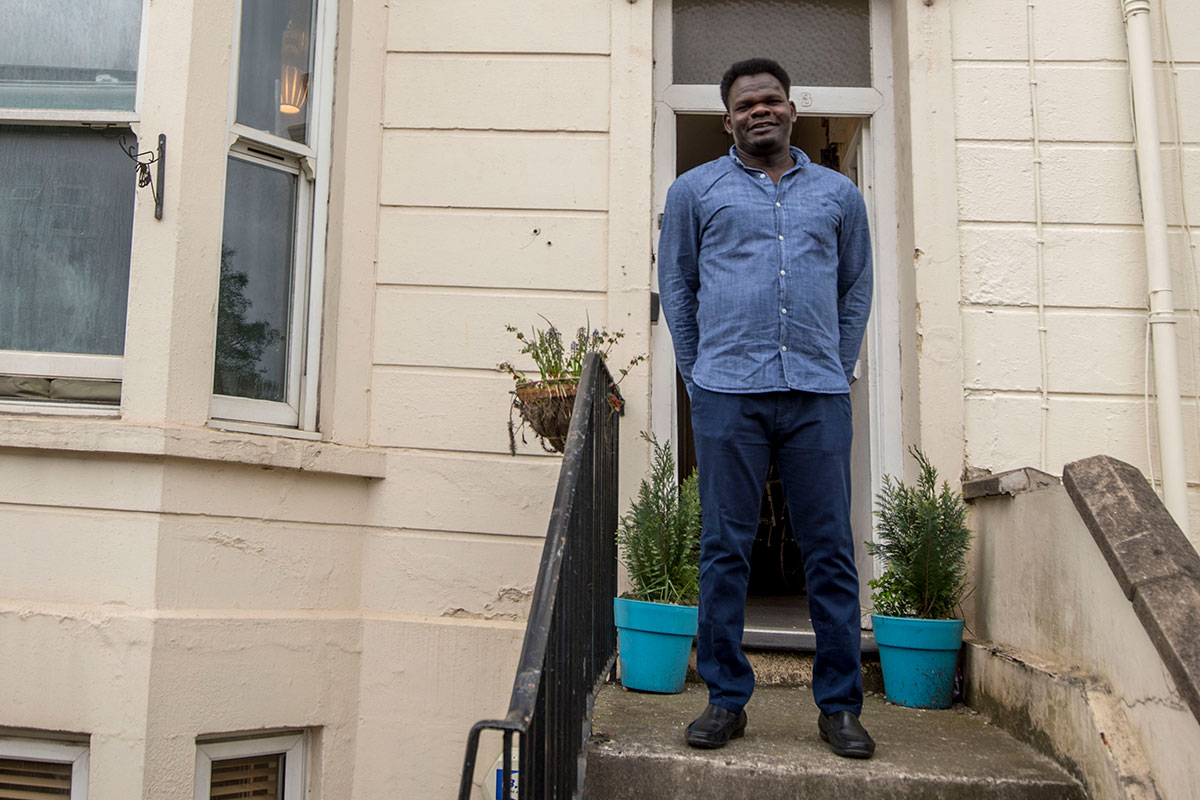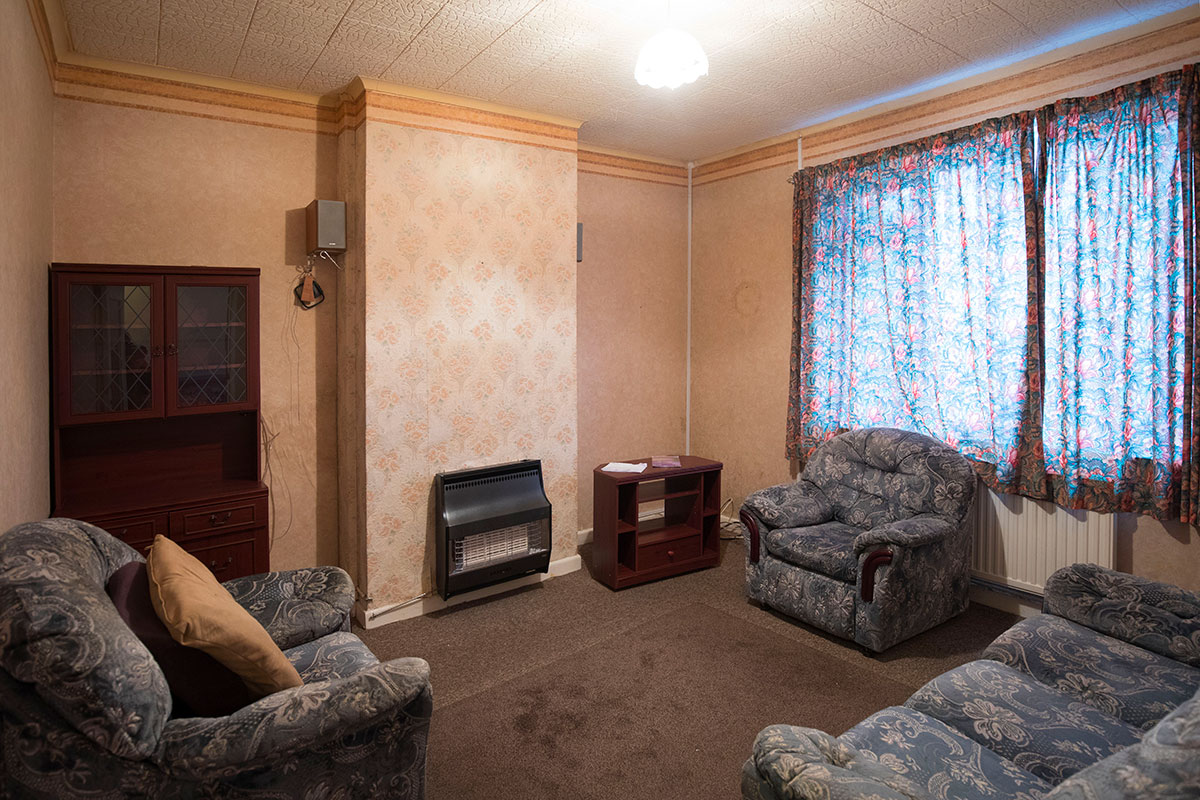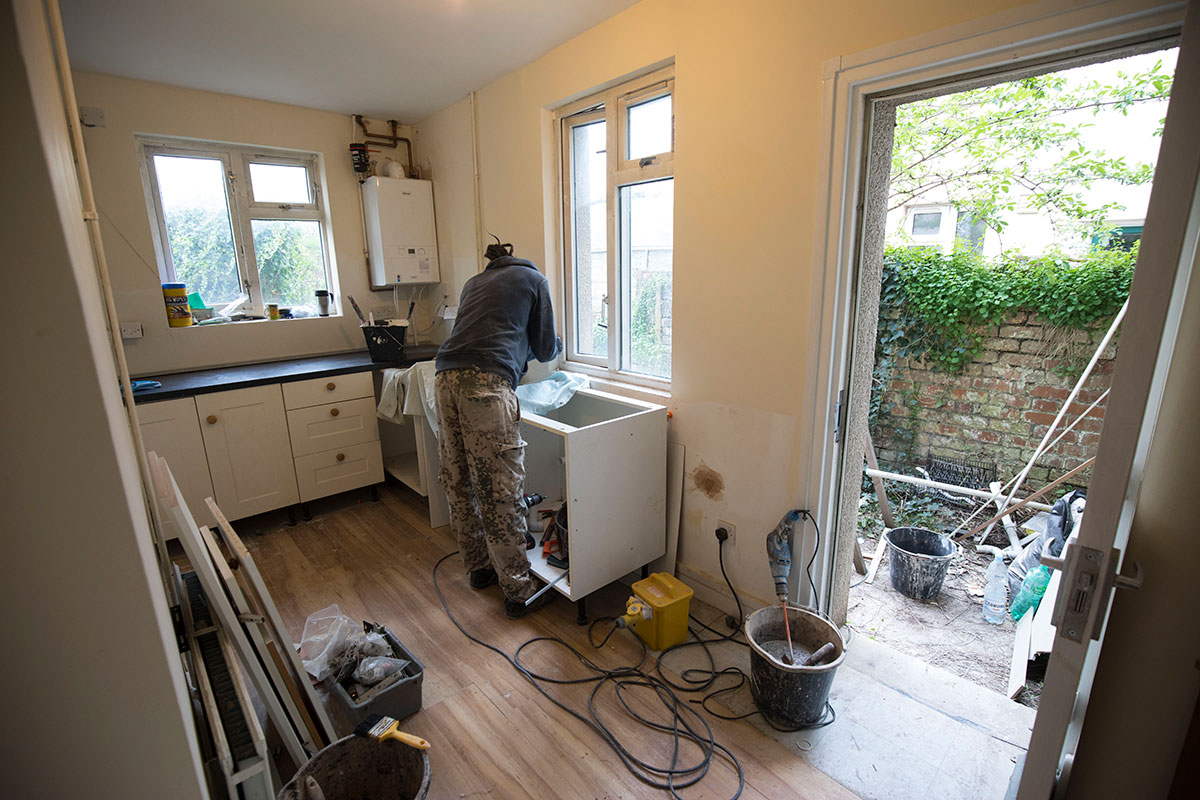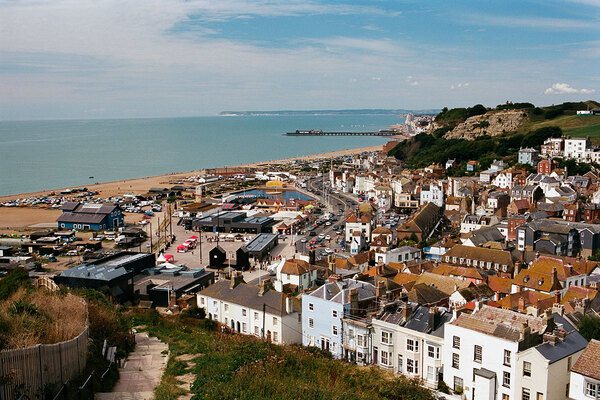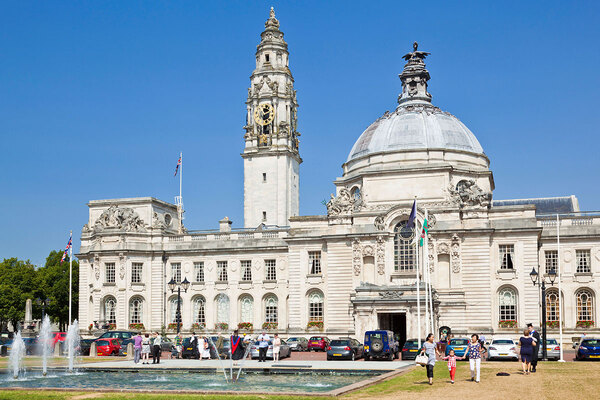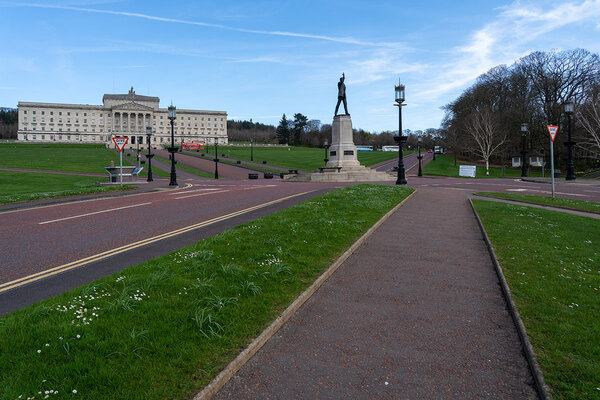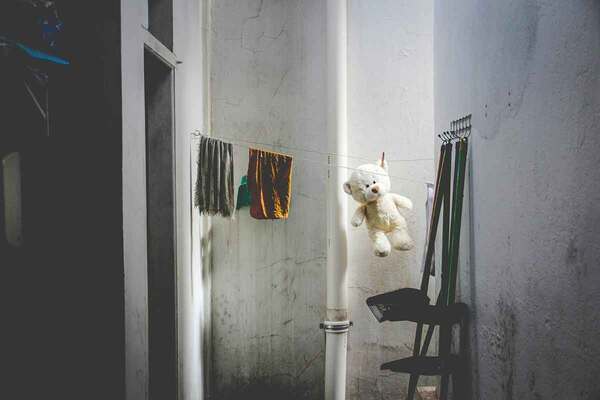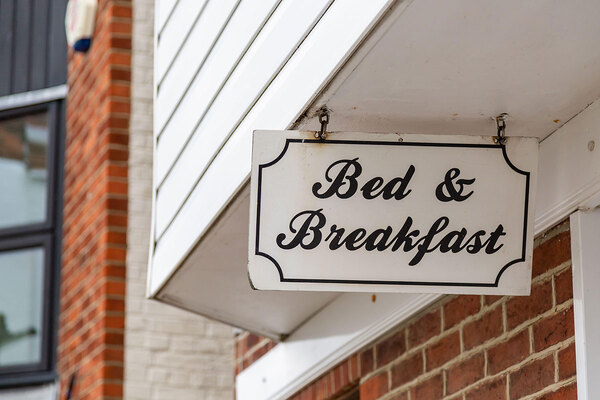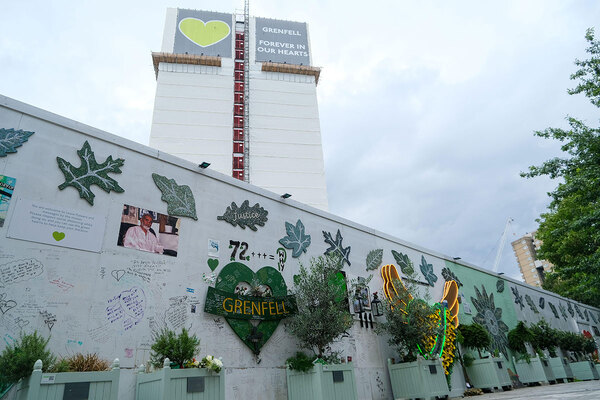Leasing council homes to charities
Bristol council homes earmarked to be sold off have instead been handed over to charities, to house refugees and other vulnerable groups. Alex Turner finds out why things changed. Photography by Paul Box
Rows of period houses in Easton, Bristol
In April 2016, Bristol Council was in the crosshairs. A mayoral campaign was underway, and the authority’s sell-offs of empty Victorian and Georgian housing, in a city that had become rapidly less affordable, were making national news.
Acquired by the council during the 1970s and 1980s, the period properties had often been left out of rolling maintenance programmes because of their dispersed nature, and they tended to be in poor condition when they became vacant, so were deemed uneconomical to repair.
Many, though, were in inner-city areas that have experienced steeply rising house prices – making the auctions profitable for the council, but also attracting accusations of social cleansing. Against a backdrop of protests, an investigation by local independent media outlet The Bristol Cable revealed almost 300 had been quietly auctioned since 2005.
Labour’s mayoral candidate Marvin Rees, who beat the incumbent George Ferguson in May 2016, said at the time that the remaining properties “would be better off being refurbished and let to council tenants, or given to charities”. Inside Housing has gone back to Bristol to find out what happened to that idea.
So far, 40 of a total 91 empty homes have been refurbished by the council to Decent Homes standards and returned to general needs stock. A further 25 have been put into use as homelessness accommodation.
The remaining 26 addresses have been leased by Bristol Council on 10-year terms, at peppercorn rents, to a number of local charities (see box overleaf), which are doing them up. One is Ashley Community Housing (ACH), which since 2008 has provided homes for refugees in the city.
Perched on the edge of a double bed in a Bristol studio flat, Ahmed Fadul is one of the residents of ACH’s newly refurbished stock.
Mr Fadul has been in his new home for almost six months, since his wife accessed a visa and joined him in the UK. He admits his wife sometimes still struggles with their home’s small size. “She asks, ‘Why do we only have one room?’ and I say, ‘Bristol is different – we are lucky,’” says Mr Fadul, 31, who has been in the city longer.
It’s a perspective many people in the city will recognise. The past decade has seen thousands of newcomers drawn to Bristol – and housing is under intense pressure.
But Mr Fadul’s route here was far tougher than most. After fleeing war-torn Darfur in western Sudan, he arrived in Libya before crossing the Mediterranean in an overcrowded boat. “We started going good, but then in the middle of the sea we lost our way and were going round in circles,” he recalls. “Just before the sun went down, a boat from Italy came and saved us.”
On 21 May 2015, three weeks after leaving Libya, Mr Fadul made it to the UK, stowing away under a lorry leaving Calais. He travelled to Bristol from Manchester in search of work after being given leave to remain, sleeping in a car before making contact with ACH, which found him accommodation. That first home, a room in a shared house let on a hostel-style licence agreement, was typical of ACH’s stock. Since 2008 the organisation has provided housing for refugees in the city, in a few dozen properties it leases from private landlords.
The seven empty properties it is receiving from Bristol Council give it a new option in the city. It will use them as move-on accommodation in which people – including families – will be able to live for up to two years on assured shorthold tenancies while they cement their independence.
Ahmed Fadul, who fled war-torn Sudan and has lived in his Bristol home for almost six months
To help them do so, the charity also runs a training arm, Himilo, which delivers careers advice and short vocational courses. Mr Fadul, who says he has done “many classes” via ACH since coming to Bristol, is hoping to use his improved language and IT skills to find an admin job.
With more than 11,000 people on Bristol’s social housing waiting list and Local Housing Allowance rates insufficient to access the private rental market, ACH’s housing manager Said Mohamed says the new homes can play an important role.
“This model is helping a lot – once we renovate, we can plan ahead and say, ‘We’ve got a family in shared accommodation; this house will be ready in two months,’” Mr Mohamed says.
This is a far better option, he adds, than having to send people to the council to present as homeless. Getting people moved on more quickly from the shared accommodation will also alleviate a little pressure on ACH’s growing waiting list, which has around 50 people on it.
A three-bed home that is most of its way through major works
Paul Smith, Bristol’s cabinet member for housing, says it’s important the council has kept hold of its 91 homes, including those leased to ACH. “In areas where these homes are, we want social housing – it’s a bulwark against gentrification and means poorer people can live nearer the centre of Bristol.”
Passing on some of the hardest-to-repair properties to other organisations, he adds, has helped, by “unblocking” housing pathways for groups of tenants with particular needs. It makes financial sense, too. The homes remain council owned, with surveying and renovation costs – so far more than £100,000 in ACH’s case – met from charities’ reserves. These are then replenished via rents over the lifetime of the leases.
While the council’s Mr Smith admits he has encountered some resistance from neighbouring residents opposing any kind of temporary accommodation, ACH’s Mr Mohamed says the charity has received mostly positive feedback.
“The longer these homes are left empty, the more problems with them there are,” he says. “When we go to work in houses, neighbours ask us questions, and when they understand where we’re from and what we’re doing, they think, ‘What a good idea.’”
The physical benefits of ACH’s involvement are apparent as we call in at two terraced properties in the Easton district.
One – a two-up, two-down ACH has just got the keys to – appears to have had little investment, apart from double-glazed windows, in the past 40 years or so. Some of its interior walls are peeling with damp, while in the kitchen there is just a solitary metre of ancient worktop.
A two-up, two-down house where work is underway
The second, which will make a good-sized family home, has already had major works, including a new kitchen and bathroom. New flooring will follow before decoration work completes the job.
While Mr Mohamed would happily take on a few more, these are likely to be the last homes offered to ACH for now, although Mr Smith doesn’t rule out others becoming available in future.
No other councils have made enquiries about the scheme, but he says he has had discussions with local housing associations, some of which also own similar sundry properties. In the meantime, tenants await.
Back at ACH’s office, just before we say goodbye to Mr Mohamed, we meet Muammar Ali, 29. He is
studying to become a mechanic, and praises “amazing” support staff who have helped him get on track.
Mr Ali, also from Sudan, fled his home in 2012, crossing the Sahara in nine days before taking a similar path via Libya and Italy, across Europe and eventually to Bristol. For five months, he and his wife had no contact; in 2017 she was finally able to join him and the couple, who are now expecting a child, are in line for one of the renovated homes.
While they don’t know when the keys will be available, there’s no hiding the anticipation in Mr Ali’s face as he looks forward to leaving the shared house he’s been in for two years. “We will be able to move, I think, before the baby comes.”
Housing for apprentices
As well as Ashley Community Housing, several other charities have taken over some of Bristol Council’s empty period homes to renovate them.
The largest beneficiary, with nine properties, is 1625 Independent People, which supports homeless and at-risk 16 to 25-year-olds into independence.
Because of Bristol’s overheated private rental market and pressure on social housing, affordable move-on housing for young people is “not really there”, says Dom Wood, chief executive of the charity. Five of the charity’s new homes have been renovated by contractors to provide some. But the remaining four, in conjunction with local energy firm OVO, have been turned over to some of 1625 Independent People’s young tenants, who are on construction pre-apprenticeship courses at college.
Once they have gained the skills, they renovate the properties, funded by OVO, which they can then live in for up to 18 months while they complete full apprenticeships. Rents are set at a level to enable them to live on their apprentice salaries without needing benefits.
Since 2016, 14 young people have completed the pre-apprenticeship programme, several of whom have now gained full-time employment, and the scheme will now move beyond Bristol.
“It’s going national,” says Mr Wood. “We’re part of the [national charity network] End Youth Homelessness alliance, and OVO, through us, are now working with them to offer it throughout the UK.”
